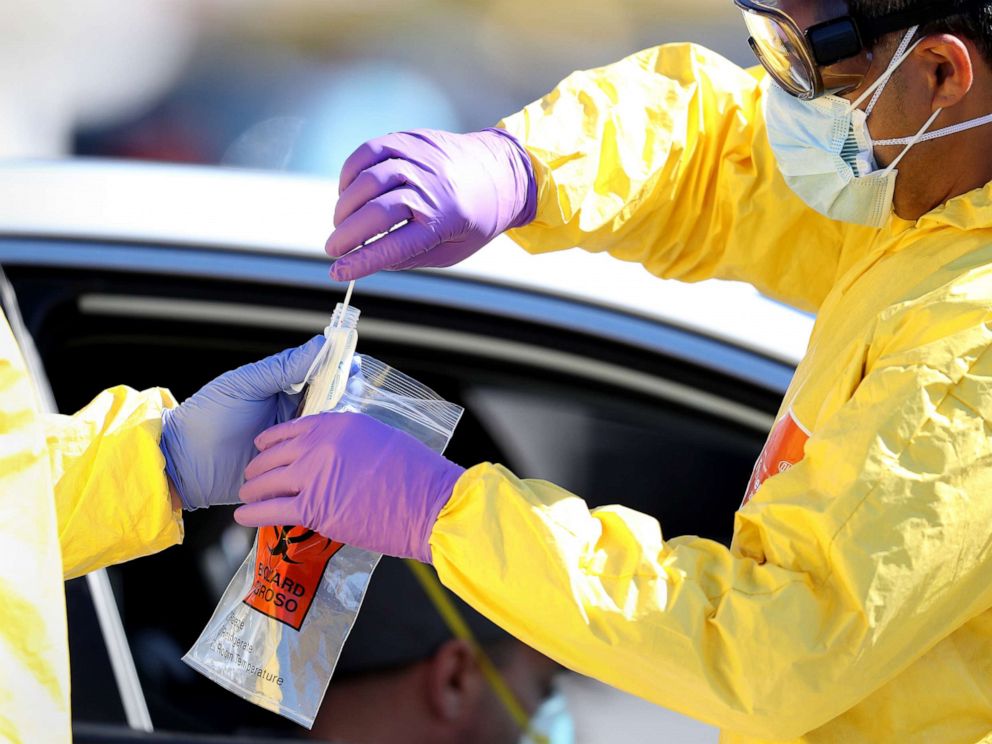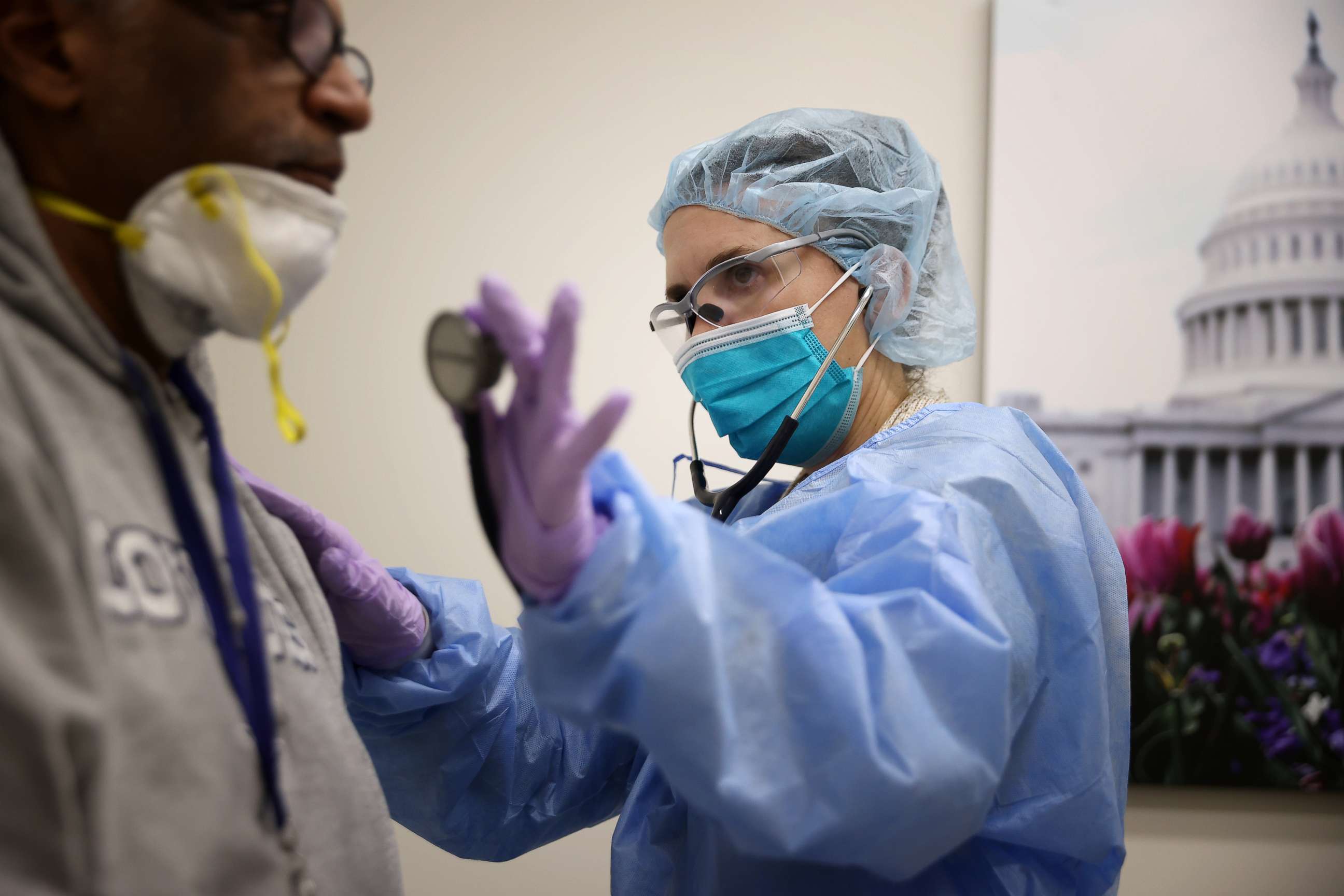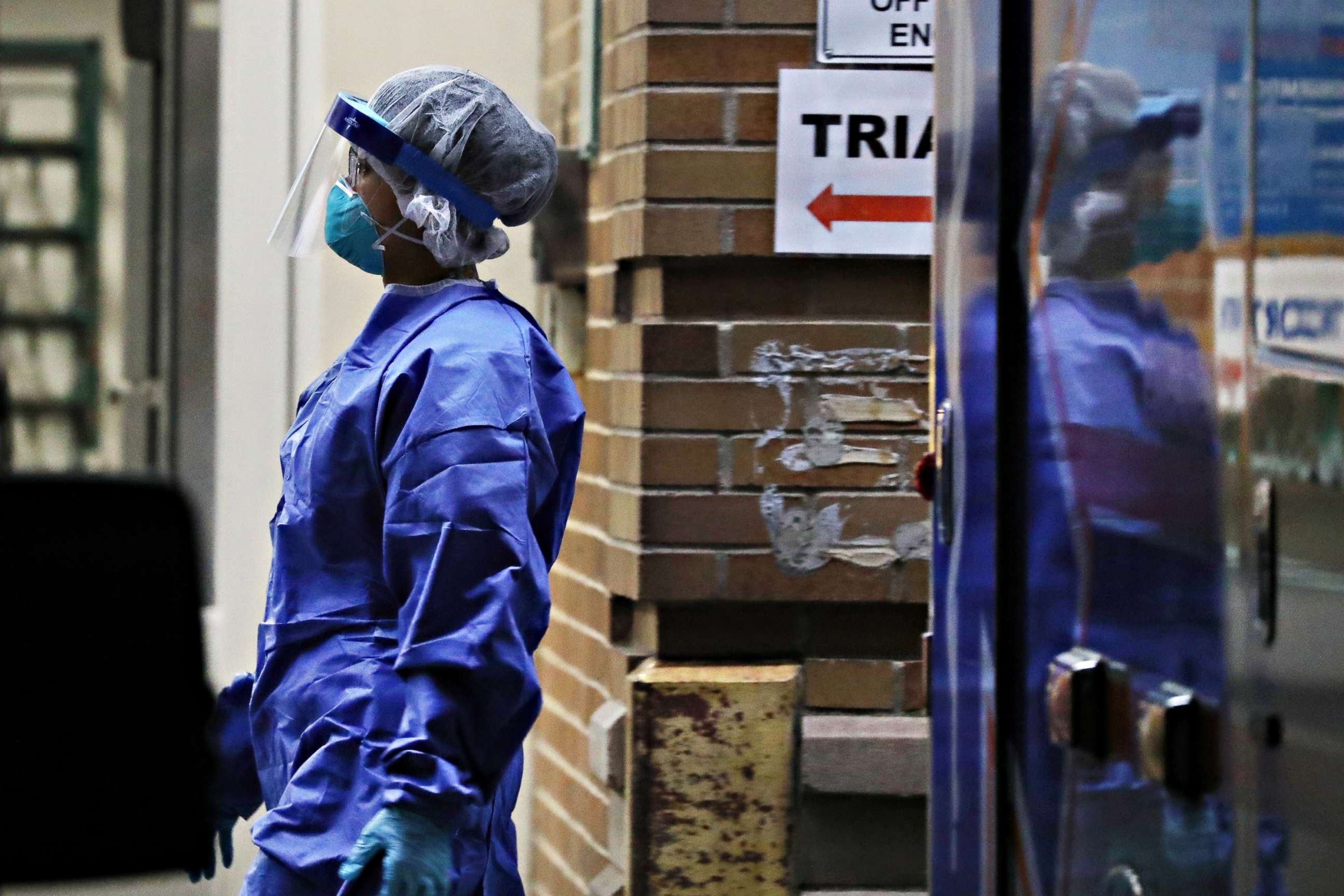Crucial coronavirus antibody tests destined for New York City caught in red tape in China
China holding COVID-19-related exports; company hopes tests will be released.
The first 100,000 coronavirus antibody tests authorized by the Food and Drug Administration and headed to New York City could have been deployed days ago, but they’ve been stuck in red-tape limbo in China, officials with the U.S. government and with the antibody test company told ABC News.
“I’ve been working in government for 15 years almost, at this point, so bureaucratic stuff is never that surprising,” said New York City Councilman Stephen Levin, a Brooklyn Democrat who chairs the city's General Welfare Committee. “I see it as a hurdle to overcome.”
The FDA issued the first emergency-use authorization for an antibody test for coronavirus on April 1. That much sought-after nod went to the kit produced by Cellex, a medical-diagnostics company based in North Carolina’s Research Triangle. Soon after the announcement, Levin contacted Cellex and helped broker an order of 100,000 test kits for New York City’s Health & Hospitals, to be earmarked for first responders.
Along with nasal swab tests and new saliva tests that check for the virus itself, antibody tests are often mentioned by experts as a gateway to getting people back to school and work. Antibodies can determine not just whether someone has recovered but whether a person has been exposed in the first place. While there is no guarantee of immunity, scientists believe it is likely that once someone produces antibodies to the coronavirus, that person has at least a temporary immunity from becoming ill again -- meaning they could potentially more safely reenter the workforce, without endangering themselves and others.

Within days of Cellex connecting with New York City Hall, the first batch of test kits were produced in Cellex’s Chinese factory and made ready to ship to the city, now the global epicenter of the pandemic where the estimated death toll now stands at more than 11,000.
And then, everything stopped.
“The Chinese government issued an export restriction on COVID-19-related medical products,” Cellex said in a statement. “While it may have good intention, it nonetheless prevented our test from being shipped out of our production site."
The Chinese leadership explained that the export restrictions were put in place amid a global pandemic to ensure quality control for the products being manufactured and to keep critical supplies in China as officials fear new hot spots could develop.
Cellex executives say their test is not particularly complex as biotech goes. But the manufacturing process is labor-intensive and cannot be automated, so the production line was built in China, where labor prices are lower.
“I felt so helpless and so heartbroken,” James Li, the CEO and chief science officer of Cellex, said of the delays. “We received tons of inquiries asking for the test and we got e-mails from doctors, 'Can you give me the test?’ [Because] they would go to New York to help if [they were] antibody-positive.”
Some business and political leaders, including New York Gov. Andrew Cuomo, have said the only way the nation could try to move forward before a fully effective COVID-19 vaccine is available would be protocols for wide-scale antibody testing.
As one senior official working on New York City coronavirus response with the Federal Emergency Management Agency said Thursday, “Of course the main priority is the ramp-up of testing capabilities through our region and nationwide. That is one of the requirements to open up the economy.”
Li and Levin said there have been calls and emails to American officials, Chinese officials and efforts to find loopholes or workarounds that might make it possible to get the 100,000 kits moving -- not to mention pave the way for the production and export of as many as 15 million globally in the coming months.

Cellex executives even considered whether workers could deconstruct the packaged test kits and ship them stateside in components that would not fall under the export restrictions.
“We do think that it's more cumbersome and will take longer to get this product to the market, but it does provide an alternative,” Li said of possibly shipping components separately and assembling kits in the U.S. “We are prepared to do it, but we are hoping we don't have to do that.”
Finally Thursday, Li said he and his team started seeing movement in the right direction.
“I feel very optimistic and hopeful that we can get this resolved and get the green light to ship our product by early next week,” Li said. “I think for the first time, we see feedback from the information within the Chinese government from at least two different sources that we will be given the green light for us to ship product. They realized that a one-size-fits-all policy does have unintended consequences that they do not like to see and they are looking at ways to correct.”
And, though President Donald Trump and Secretary of State Mike Pompeo have ratcheted up their anti-China rhetoric in recent days, a senior State Department official confirmed to ABC News that, in general, signs are pointing in the right direction.

Hugo Yon, deputy assistant secretary of state for transportation, said the State Department and other agencies under the White House's direction are "working very hard with the Chinese to keep critical cargo moving between our countries, including air cargo … that's important in the battle against COVID-19."
"We've had good communications at the working-level,” Yon said, “facilitating planes and crews to keep those kinds of goods moving.”
The FDA has approved several other antibody testing protocols produced by different manufacturers in the last week. But even with more of those products becoming available, officials fear it could take months before testing is offered widely to people throughout the U.S.
“I think a lot of politics that have crept into this conversation are distinctly unhelpful,” Levin said, “and we should be focused on helping out our fellow human beings wherever they are because we’re all in this together, quite literally.”
What to know about coronavirus:
- How it started and how to protect yourself: Coronavirus explained
- What to do if you have symptoms: Coronavirus symptoms
- Tracking the spread in the U.S. and worldwide: Coronavirus map
ABC News' Conor Finnegan and Alexandra Myers contributed to this report.




